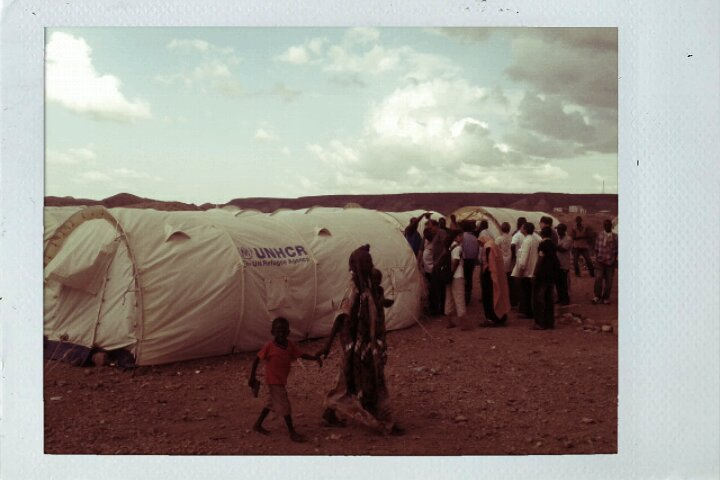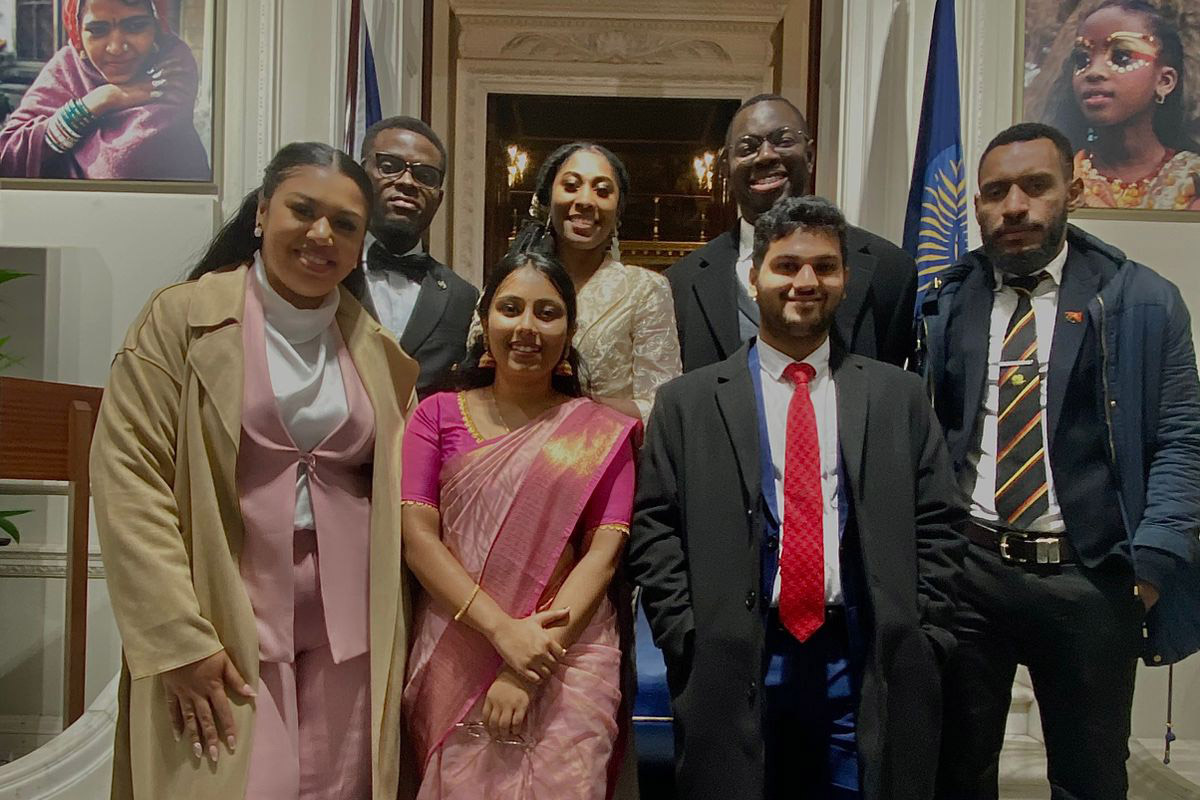“Rising sea levels, temperatures and tensions”
November 19 Young people play an integral role in advancing development, democracy and peace. At the 10th Commonwealth Youth Forum in Malta, 21-25 November, over 400 youth leaders will discuss the challenges and opportunities facing young people, and devise relevant policy solutions through four main agendas – economic, environmental, social and political. The theme of the Forum is ‘Adding Global Value… #Whatnext?’. Renice Bostic, 24, a Correspondent from Christ Church in Barbados, examines how climate change brings a new dimension to security issues.
Young people play an integral role in advancing development, democracy and peace. At the 10th Commonwealth Youth Forum in Malta, 21-25 November, over 400 youth leaders will discuss the challenges and opportunities facing young people, and devise relevant policy solutions through four main agendas – economic, environmental, social and political. The theme of the Forum is ‘Adding Global Value… #Whatnext?’. Renice Bostic, 24, a Correspondent from Christ Church in Barbados, examines how climate change brings a new dimension to security issues.
The 2015 climate ‘agreement’ can be the make or break deal of the United Nations Framework Convention on Climate Change. However, beyond saving polar bears and protecting coastal settlements, it is likely to set the tone for international peace and security. Yes, climate change is a clear and present danger.
Climate change is a new type of weapon of mass destruction; a new threat to peace and security. Gone are the traditional concepts of security. Countries are now confronted by complicated threats, such as the link between climate change, human migration and conflict. No amount of military might can neutralize them. Climate change could become the multiplier, which exacerbates existing the challenges of poverty, food security and water security, making them more complex and seemingly intractable.
This is even more pronounced for Least Developed Countries (LDCs) and Small Island Developing States (SIDS), which are both represented in the Commonwealth. We must dissect the notion that climate change is a peace and security issue.
Climate change is possibly one of the greatest threats to life as we know it. Many scientists believe that this variability is caused by the concentration of greenhouse gases from human activities. Change in the Earth’s temperature is common, but this rate of global warming is unprecedented. Consequences such as sea level rise, more intense and frequent hurricanes, desertification, heat waves and biodiversity loss have been predicted.
I remember when the intense Hurricane Ivan devastated my neighbouring Caribbean island, Grenada, in 2004. Damages amounted to more than twice the island’s gross domestic product. Our Commonwealth island territories are particularly vulnerable, and are suffering already. In fact, the entire Commonwealth, from African States, to the Americas, Asia, Oceania and in Europe are feeling the effects. Among the many consequences of this phenomenon previously mentioned, food insecurity as a result of increased drought periods can lead to economic and social instability.
There are several instances where climate change has worsened threats, and can therefore be linked to other challenges that threaten peace and security. For example, in Palau, coastal erosion has degraded arable land and undermined food security, which can increase tensions over resources. Another crisis which has gained international attention is the conflict in Syria; a reaction to a brutal regime and a wave of political unrest. Yet this is not the entire story. Other social, economic and environmental factors contributed to the conflict. It is reported that from 2006 to 2011 up to 60 per cent of Syria’s land experienced the worst long-term drought in centuries. Up to one million were left food insecure and the number of people living in extreme poverty rose to three million. While political differences were driving forces, climate change contributed to food shortages and high prices of available food, which were central grievances. As a result of this civil war, we have witnessed the mass migration of Syrian refugees, impacting Commonwealth countries such as the United Kingdom.
Migration is at the centre of many heated debates at a regional and international level, especially this year. Deteriorating environmental circumstances have historically induced migration as an adaptive response. As rainfall and temperature patterns change, sea levels rise, and drought and famine threaten economic stability and health, it is likely that human migration will increase. Already, we have seen that Kiribati is buying land in Fiji to help secure its future.
The possibility that entire island nations may cease to exist as a result of sea level rise attributed to climate change presents a worrying picture. More than half of the Commonwealth nations are islands. Loss of territory, and increased migratory flows both internally and externally are possibilities that cannot be ignored. Even if most people affected by climate change move short distances internally, these shifts have the potential to alter political dynamics, increase ethnic tensions or provoke clashes over resources.
While climate change is not being argued as the only push factor for migration, or that migrants will always create conflict, these are contributory factors to possible tensions. In fact, large-scale population displacement has already been recognised by the United Nations Security Council as a threat to international peace and stability. As the Syrian refugee crisis unfolds across Europe, this is becoming clear.
Scientists caution that humans should expect to lose their territory, change what they eat, where they grow food or access water, and in some instances change where they live and diversify their economic activities. This undoubtedly has many legal implications in terms of jurisdiction, as well as social implications in terms of rising tension.
In response to the changing face of insecurity, the international community must move away from Cold War hard tactics, and focus more on human security and sustainable development. The success of the recently adopted and globally applicable Sustainable Development Goals depends on the willingness to recognise interlinked challenges such as this one.
Any solution must involve broadening the perspectives of our leaders. They must be encouraged to investigate the intrinsic links between climate change and various crises. As a Commonwealth family, we must come together to facilitate this, for the sake of our particularly vulnerable members and indeed our future generations. These are new threats we are facing, and we must face them in new ways.
Reach me on Twitter @ruhniece
photo credit: Refugee Camp (UNHCR tents) via photopin (license)
…………………………………………………………………………………………………………………
About me: In 2005, I began working with humanitarian organizations and soon developed a passion for voluntary work. Several years and NGOs later, I am pursuing a career in international development, which lead me to pursue an LLM in International Law and Sustainable Development.
Prior to this, I worked as a journalist at The Barbados Advocate, with a B.A in Communication Studies and International Relations. When I’m not conducting research, I am performing (dance), writing, and travelling.
…………………………………………………………………………………………………………………
Opinions expressed in this article are those of the author and do not necessarily represent the views of the Commonwealth Youth Programme. Articles are published in a spirit of dialogue, respect and understanding. If you disagree, why not submit a response?
To learn more about becoming a Commonwealth Correspondent please visit: http://www.yourcommonwealth.org/submit-articles/commonwealthcorrespondents/
…………………………………………………………………………




